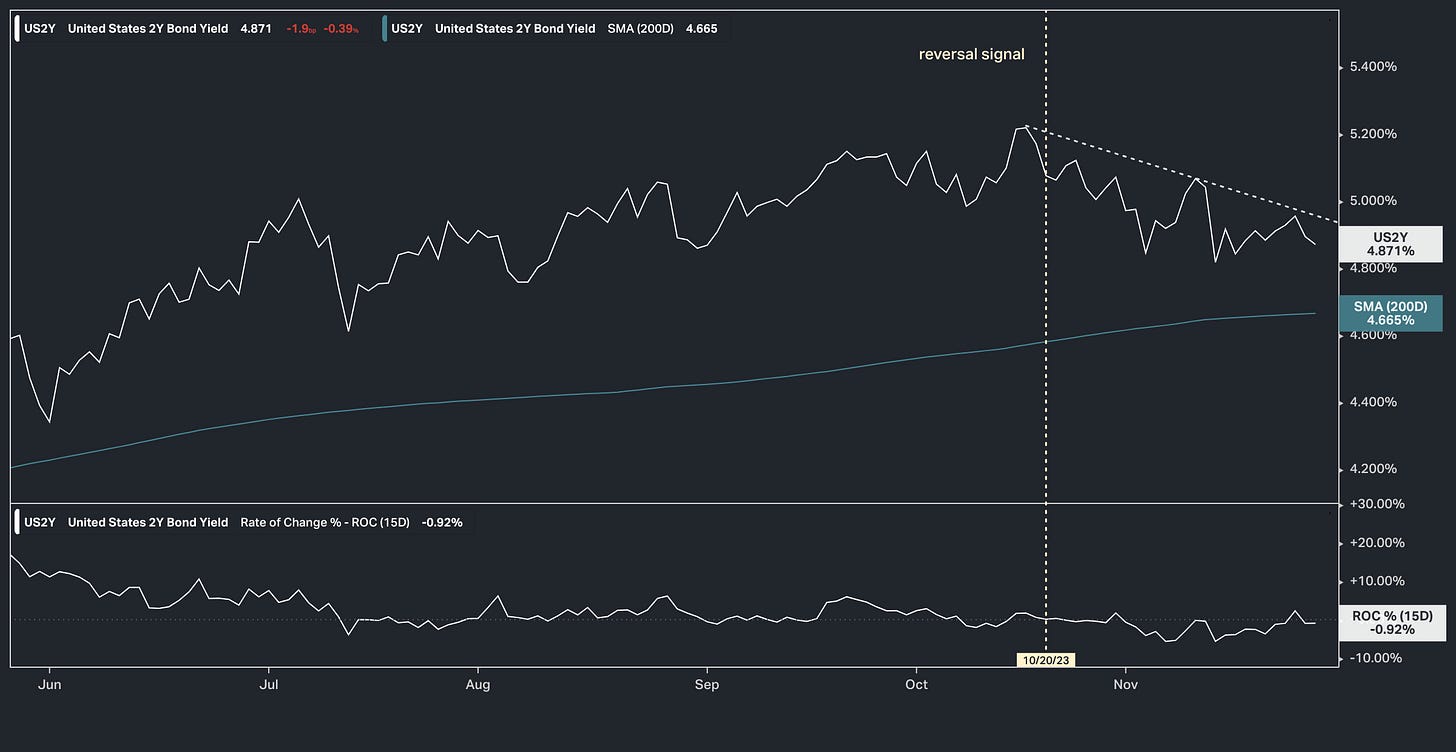We're almost through Q3 earnings. As we discussed heading into earnings season, Wall Street was looking for another contraction (albeit slight) in S&P 500 earnings, and (confusingly) that was in a period during which the economy was hot, growing at about a 5% annualized quarterly growth rate.
So, the stage was set for positive surprises, and positive surprises tend to be good for stocks.
Indeed, we've had a better than average number of companies reporting positive earnings surprises, for a blended year-over-year earnings growth of better than 4%.
Over the past six weeks, since earnings season kicked off with the big banks, stocks are up 4% (S&P 500) - it's broad based with the equal-weighted S&P up 4.5%.
Of course, the Fed has a considerable influence on this outcome for stocks. A few days into earnings season, Jerome Powell signaled the end of the tightening cycle in a discussion at the Economic Club of New York. That "signal" immediately materialised in the interest rate market, with a technical reversal pattern in the 2-year yield (an outside day).
Similar reversal patterns followed over subsequent days, in the 10-year yield, the largest corporate bond ETF (LQD), and the largest government bond ETF (TLT).
Now, we get October core PCE on Thursday, the Fed's favored inflation gauge. Will it derail the conditions we discussed above? Highly unlikely.
It's expected to come in at a 3.5% year-over-year rate of change. That will increase the "real interest rate" (the difference between the Fed Funds rate and inflation) to 200 basis points, which further tightens financial conditions.
And with that, as we've discussed over the past few weeks, as inflation continues to go the Fed's way (i.e. continues to trend lower), the Fed will have to cut rates aggressively next year.







Absent a significant rise in unemployment or a significant decline in GDP, I submit the Fed will be quite comfortable doing nothing at all. I believe Powell has made it quite clear he will not make the Arthur Burns mistakes and if the economy really does stay strong, they will watch and wait for much longer than I believe the market is pricing. they will only move if things start to really spiral out of control, and as of now, there is no evidence that is the case. plus, consider that leading up to the presidential election, you know that the administration is going to pull out all the stops to spend as much as possible to support growth. I fear your desire to see lower interest rates boost the stock market is just that, a desire, and not a likely outcome. if they are cutting it is because things have gone downhill fast, which probably won't help stocks at all.